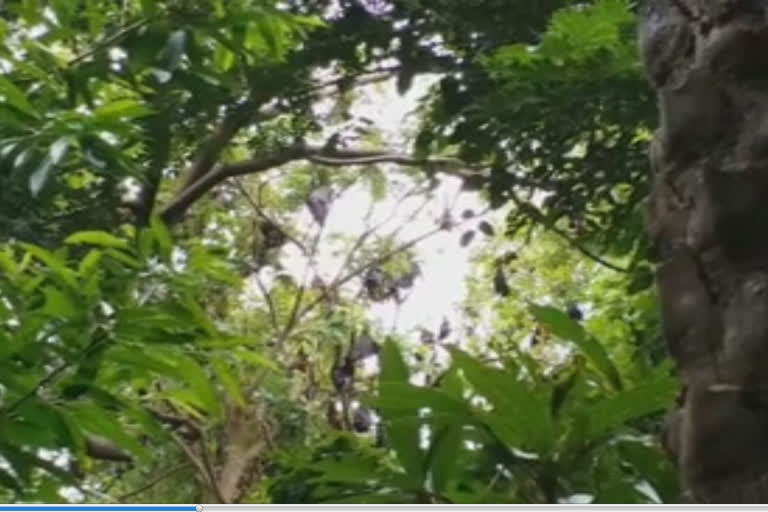Thiruvarur: Evading stereotypes, residents of Aanaikuppam village in Tamil Nadu have continued their long old practice to protect and conserve bats despite theories that SARS CoV-2 virus originated from them. Contrary to the belief that bats are carriers of novel coronavirus, villagers have gone out of their way to create a sanctuary for more than 2000 fruit bats, developing a special bond with them. Often considered as a sign of evil and carriers of diseases, bats in this village are man's friends.
People of Thiruvarur district have converted Vairani thidal, which is a remote area in the woods, into a sanctuary where hundreds of bats are seen clinging to the branches to the trees. Vairani thidal has been converted into a beautiful home for bats using mahua, palm, banyan and peepal trees, a practice followed for more than 50 years.
The bats rest all day hanging upside down on the trees in the forest and go for hunting after 6 pm. Since the bats consume only fruits from banyan, neem and guava trees, they are referred to as 'fruit bats'.
The villagers of Aanaikuppam believe that bats are sign of prosperity and good luck. Ayyanar (a village deity) temple has also been built in Vairani Thidal.
READ: COVID-19: Tamil Nadu Minister critical, says hospital
Burning of crackers during festivals or any occasions are not allowed as villagers fear that bats may fly away.
"We do not believe that they are carriers of the virus," one of the villagers said.
"We have been conserving bats for ages as we think they bring good tidings. We put in all our efforts to protect them and anyone who tries to harm bats is given strict punishment. These fruit bats go hunting at night and return in the morning," said a villager.
Another villager said, "We are very strict with the laws made to protect the bats. Anyone who is caught hunting or poaching the fruit bats is handed over to the police. The beauty of Vairani Thidal has heightened by the sight of hundreds of bats clinging from the branches of banyan and peepal trees."
Villagers conserve forests, plant trees, sprinkle water on the bats to save them from heat and also take help from wildlife conservationists and researchers to protect the winged mammals.



